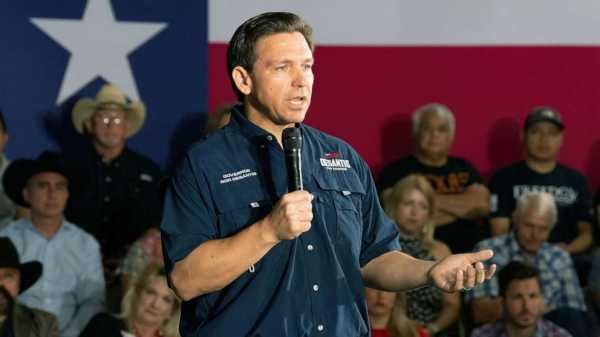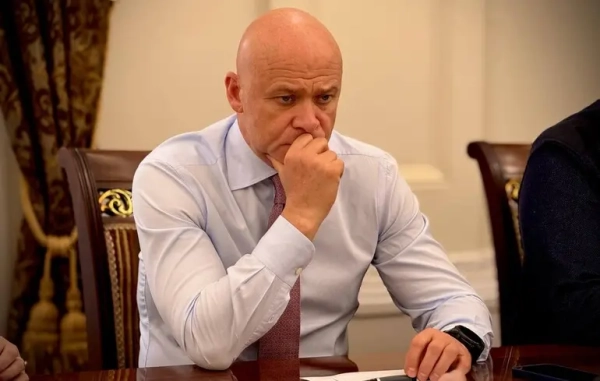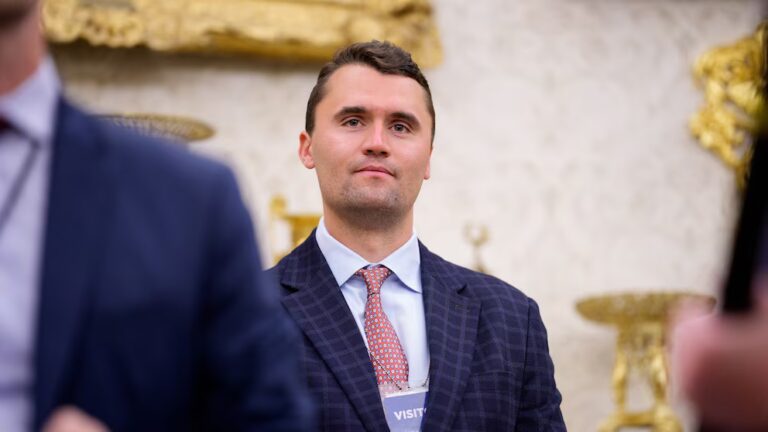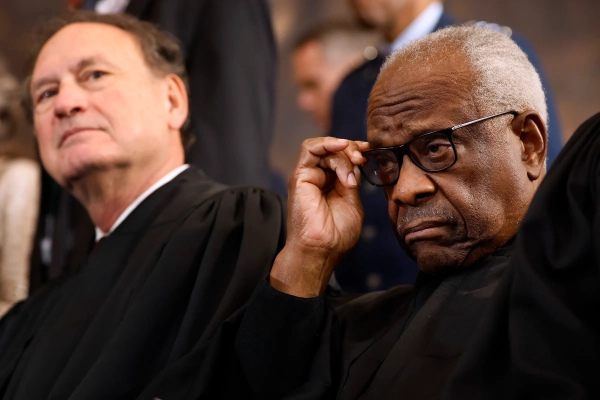Sen. Tim Scott's supporters are bankrolling an eight-figure advertising blitz in key early voting states in an effort to build on his recent polling momentum in the early voting states.
Upon entering the race in May, Scott committed to a $6 million ad buy in Iowa and New Hampshire, the first two states to vote in the Republican primary next year. Soon after, the Trust in the Mission super PAC supporting Scott announced its own $7.25 million ad buy. But now, the PAC is upping the ante with an announcement that beginning in September, it's planning a $40 million ad campaign that will run in Iowa, New Hampshire, South Carolina and potentially Nevada — a push that aims to capitalize on shifting polling in the early states, including indications that he is currently only a few points behind Florida Gov. Ron DeSantis in Iowa and New Hampshire, according to surveys collected by FiveThirtyEight.
Scott already entered the race with a huge financial advantage, boasting $22 million cash on hand, most of which came from his previous Senate campaign war chest.
But now he aims to rake in more cash to keep the momentum going, ramping up fundraising efforts across six states in the next month. He spent one recent weekend fundraising in Aspen, Colorado, making a stop at a Lincoln Day fundraising event for the Republicans of Pitkin County on July 22, according to a source familiar with the event. The event asked guests to pay $750 to $4,675 per seat, with just over 100 people in attendance — and it was held on the heels of a Republican Governors Association meeting that kicked off on July 23 and drew many potential donors.
Scott headed to California, which will be followed by a stop in Maine and then on to the Hamptons after the Lincoln Day Dinner event in Iowa. In the Golden State, he spoke at a fundraising event hosted by the Republican Party of Orange County and the California Women's Leadership Association where tickets ranged from $250 to $7,500.
The timing of the ad buy suggests the decision by the super PAC — which can support but not directly coordinate with Scott — has been in the works for weeks rather than being a response to any one campaign.
"This has been a systematic campaign strategy that his collective teams have been running simultaneously. I don't think you see this as a reaction to DeSantis, as much as it is recognizing the fact that a significant play had to be made to build name I.D.," David Wilson, a South Carolina conservative strategist, told ABC News.
Scott may not need help with name recognition in his home state, but he will need it in Iowa and New Hampshire, states that are "vitally important in building a national presence for any candidate who's looking to move into 1600 Pennsylvania Avenue," Wilson said.
As the only candidate currently serving in Congress, Scott has only campaigned in New Hampshire a handful of times so far, but Jeff Grappone, a Republican strategist who has advised presidential campaigns in the state, said the super PAC's huge ad blitz makes it clear that he wants to be a player in the Granite State.
"New Hampshire is a place where people expect candidates to show up in diners and town halls, but it also includes a robust paid media effort. New Hampshire shares a market with Boston, so it takes a significant investment to break through," said Grappone.
A source familiar with the thinking behind the Scott PAC's spending told ABC News that "it's going to get incredibly costly for outside groups to spend in broadcast media markets in those early states come the fall when everyone's trying to advertise. Therefore, locking the best inventory at the lowest rates is a significant advantage."
Other White House hopefuls have taken notice of his recent moves — including DeSantis, whose candidacy could be threatened by a potential national Scott surge.
In a memo circulated by his campaign earlier this month and obtained by ABC News, DeSantis' team noted that Scott "has earned a serious look at this stage" even while arguing the senator "is lacking the fight that our electorate is looking for."
When asked by ABC News' Will McDuffie whether he's worried about Scott at a campaign stop at an Iowa Dairy Queen, DeSantis responded, "I'm not worried about anything, man. We've got a plan."

Florida Governor and 2024 Republican Presidential hopeful Ron DeSantis speaks with voters and residents in border-adjacent communities during a campaign event in Eagle Pass, Texas, June 26, 2023.Suzanne Cordeiro/AFP via Getty Images, FILE
DeSantis and his super PAC reported spending nearly $16 million in the first half of the year on media in FEC filings.
Scott attempts to pitch himself to voters by leaning on his personal story — that of a poor Black kid being raised by a single mother and a grandfather who grew up picking cotton — recounting he was able to get a seat in the Senate through hard work and determination. As Scott puts it, his family went "from cotton to Congress."
For voters like Penny Overbaugh from Bettendorf, Iowa, Scott's positive message resonates: "I love his straight talk. He doesn't give me all this political jargon. I agree with his answers."

Republican presidential candidate Tim Scott speaks at the “Roast and Ride” event hosted by U.S. Senator Joni Ernst while campaigning in Des Moines, Iowa, June 3, 2023.Dave Kaup/Reuters
But many Americans haven't even begun to tune in to the primary process, with the earliest primary voters not set to head to the polls for another five months. The voters in these early states could be the first indicator of campaigns' viability ahead of the first GOP primary debate, scheduled for Aug. 23.
"We're finally coming out of the summer leading into the fall when people are going to start paying attention, because I personally would rather pay attention to the beach than pay attention to politics at the moment," said Wilson.
Sourse: abcnews.go.com






